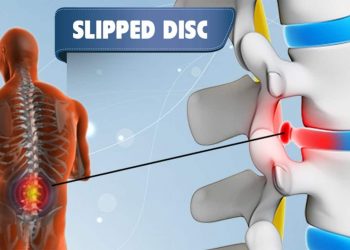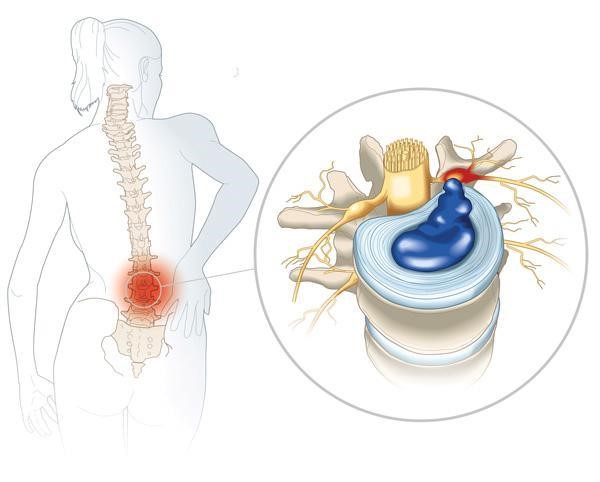Pioneer in Laser Spine Surgery
Pioneer in Laser Spine Surgery
When the disc or cushion slips into the spinal canal causing compression of nerve/ nerves it is called SLIP DISC OR HERNIATED DISC or SPINAL STENOSIS. Compression of the nerve/ nerves results in BACK PAIN or Buttock pain or LEG PAIN.


Slip disc is the result of daily wear and tear. It is an ongoing process of aging of the disc. This wear and tear process is called Degeneration and is related to daily activities over a period of time aggravated by poor posture and weak core muscles.
Slip disc may cause loss of bowel or bladder control with weakness in lower limbs called cauda equina syndrome (CES) which rarely may cause paralysis of one or both lower limbs.
Your spine specialist may examine you clinically and may ask for investigations like X- rays and MRI scans to diagnose the presence of slip disc in presence of symptoms. MRI can show various grades of Slip disc and may also suggest if surgery is really needed in view of ongoing compression of nerves in the spinal canal.

Traditional “open” spine surgery may require several days in the hospital as it may involve a three-inch long incision, in which muscles and tissues are separated for optimal access to the injury site. The surgery usually results in trauma to surrounding tissues and some blood loss. Because of this the affected tissues and muscles need adequate healing time.
Mumbai Spine Institute encourages the latest minimally invasive techniques and instrumentation to help patients recover in a shorter period of time and allow for a quicker return home.
Innovative developments in minimally invasive techniques have pioneered better ways for the surgeon to access the spine, moreover making the recovery process more seamless. In minimally invasive spine surgery, a smaller incision is made, sometimes only a half-inch in length. The surgeon inserts special surgical instruments through these tiny incisions to access the damaged disc in the spine.
Entry and repair to the damaged disc or vertebrae are achieved without harming nearby muscles and tissues when using minimally invasive techniques.
Minimally invasive spine surgery requires extensive training and experience to master the use of the tools, but there is a tremendous benefit for the patient.
By definition, ESS is a surgical procedure using micro-sized incisions (less than 1-inch) and small tubular systems in combination with an endoscope to visualize the surgical field. While endoscopic surgical approaches are commonly used to treat other areas of the body (eg, gastrointestinal), advances in optics, visualization of tissues, and spinal imaging make ESS a surgical treatment choice for many patients.
Endoscopic spine surgery is an advanced, state-of-the-art form of minimally invasive spine surgery designed to provide the patient a quicker recovery time and less recurring pain than traditional spine surgery methods. ESS also can help preserve normal range of spine mobility post-operatively. In some cases, the ESS procedure can be performed using regional anesthesia instead of general anesthesia, decreasing overall medical risks in patients who are older and/or have co-existing medical disorders that may increase surgical risk.
| Dr. Rahul Prakash |
|---|
No – Most of the patients with Slip disc/ Disc herniation get better with non-surgical methods
Normally the type of non-surgical treatment is decided based on the duration and severity of symptoms in consultation with your spine surgeon/spine specialist. The options available for slip disc treatment are
Yes – Physiotherapy has a major role in herniated disc recovery. It teaches how to condition your body to prevent further injury and help in the recovery of the painful episode. Physiotherapy shall be taken in the supervision and guidance of a spine specialist.
Most patients with slip disc respond well to non-surgical treatments (such as medication),